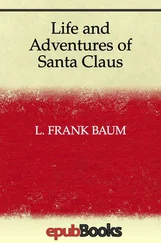Charles Dickens - Life And Adventures Of Martin Chuzzlewit
Здесь есть возможность читать онлайн «Charles Dickens - Life And Adventures Of Martin Chuzzlewit» весь текст электронной книги совершенно бесплатно (целиком полную версию без сокращений). В некоторых случаях можно слушать аудио, скачать через торрент в формате fb2 и присутствует краткое содержание. Жанр: Классическая проза, на английском языке. Описание произведения, (предисловие) а так же отзывы посетителей доступны на портале библиотеки ЛибКат.
- Название:Life And Adventures Of Martin Chuzzlewit
- Автор:
- Жанр:
- Год:неизвестен
- ISBN:нет данных
- Рейтинг книги:5 / 5. Голосов: 1
-
Избранное:Добавить в избранное
- Отзывы:
-
Ваша оценка:
- 100
- 1
- 2
- 3
- 4
- 5
Life And Adventures Of Martin Chuzzlewit: краткое содержание, описание и аннотация
Предлагаем к чтению аннотацию, описание, краткое содержание или предисловие (зависит от того, что написал сам автор книги «Life And Adventures Of Martin Chuzzlewit»). Если вы не нашли необходимую информацию о книге — напишите в комментариях, мы постараемся отыскать её.
Life And Adventures Of Martin Chuzzlewit — читать онлайн бесплатно полную книгу (весь текст) целиком
Ниже представлен текст книги, разбитый по страницам. Система сохранения места последней прочитанной страницы, позволяет с удобством читать онлайн бесплатно книгу «Life And Adventures Of Martin Chuzzlewit», без необходимости каждый раз заново искать на чём Вы остановились. Поставьте закладку, и сможете в любой момент перейти на страницу, на которой закончили чтение.
Интервал:
Закладка:
The sun was welcome to him. There were life and motion, and a world astir, to divide the attention of Day. It was the eye of Night—of wakeful, watchful, silent, and attentive Night, with so much leisure for the observation of his wicked thoughts—that he dreaded most. There is no glare in the night. Even Glory shows to small advantage in the night, upon a crowded battle-field. How then shows Glory's blood-relation, bastard Murder!
Aye! He made no compromise, and held no secret with himself now. Murder. He had come to do it.
“Let me get down here” he said
“Short of the town, eh!” observed the coachman.
“I may get down where I please, I suppose?”
“You got up to please yourself, and may get down to please yourself. It won't break our hearts to lose you, and it wouldn't have broken “em if we'd never found you. Be a little quicker. That's all.”
The guard had alighted, and was waiting in the road to take his money. In the jealousy and distrust of what he contemplated, he thought this man looked at him with more than common curiosity
“What are you staring at?” said Jonas.
“Not at a handsome man,” returned the guard. “If you want your fortune told, I'll tell you a bit of it. You won't be drowned. That's a consolation for you.”
Before he could retort or turn away, the coachman put an end to the dialogue by giving him a cut with his whip, and biddig him get out for a surly dog. The guard jumped up to his seat at the same moment, and they drove off, laughing; leaving him to stand in the road and shake his fist at them. He was not displeased though, on second thoughts, to have been taken for an ill-conditioned common country fellow; but rather congratulated himself upon it as a proof that he was well disguised.
Wandering into a copse by the road-side—but not in that place; two or three miles off—he tore out from a fence a thick, hard, knotted stake; and, sitting down beneath a hayrick, spent some time in shaping it, in peeling off the bark, and fashioning its jagged head with his knife.
The day passed on. Noon, afternoon, evening. Sunset.
At that serene and peaceful time two men, riding in a gig, came out of the city by a road not much frequented. It was the day on which Mr Pecksniff had agreed to dine with Montague. He had kept his appointment, and was now going home. His host was riding with him for a short distance; meaning to return by a pleasant track, which Mr Pecksniff had engaged to show him, through some fields. Jonas knew their plans. He had hung about the inn-yard while they were at dinner and had heard their orders given.
They were loud and merry in their conversation, and might have been heard at some distance; far above the sound of their carriage wheels or horses” hoofs. They came on noisily, to where a stile and footpath indicated their point of separation. Here they stopped.
“It's too soon. Much too soon,” said Mr Pecksniff. “But this is the place, my dear sir. Keep the path, and go straight through the little wood you'll come to. The path is narrower there, but you can't miss it. When shall I see you again? Soon I hope?”
“I hope so,” replied Montague.
“Good night!”
“Good night. And a pleasant ride!”
So long as Mr Pecksniff was in sight, and turned his head at intervals to salute him, Montague stood in the road smiling, and waving his hand. But when his new partner had disappeared, and this show was no longer necessary, he sat down on the stile with looks so altered, that he might have grown ten years older in the meantime.
He was flushed with wine, but not gay. His scheme had succeeded, but he showed no triumph. The effort of sustaining his difficult part before his late companion had fatigued him, perhaps, or it may be that the evening whispered to his conscience, or it may be (as it HAS been) that a shadowy veil was dropping round him, closing out all thoughts but the presentiment and vague foreknowledge of impending doom.
If there be fluids, as we know there are, which, conscious of a coming wind, or rain, or frost, will shrink and strive to hide themselves in their glass arteries; may not that subtle liquor of the blood perceive, by properties within itself, that hands are raised to waste and spill it; and in the veins of men run cold and dull as his did, in that hour!
So cold, although the air was warm; so dull, although the sky was bright; that he rose up shivering from his seat, and hastily resumed his walk. He checked himself as hastily; undecided whether to pursue the footpath, which was lonely and retired, or to go back by the road.
He took the footpath.
The glory of the departing sun was on his face. The music of the birds was in his ears. Sweet wild flowers bloomed about him. Thatched roofs of poor men's homes were in the distance; and an old grey spire, surmounted by a Cross, rose up between him and the coming night.
He had never read the lesson which these things conveyed; he had ever mocked and turned away from it; but, before going down into a hollow place, he looked round, once, upon the evening prospect, sorrowfully. Then he went down, down, down, into the dell.
It brought him to the wood; a close, thick, shadowy wood, through which the path went winding on, dwindling away into a slender sheeptrack. He paused before entering; for the stillness of this spot almost daunted him.
The last rays of the sun were shining in, aslant, making a path of golden light along the stems and branches in its range, which, even as he looked, began to die away, yielding gently to the twilight that came creeping on. It was so very quiet that the soft and stealthy moss about the trunks of some old trees, seemed to have grown out of the silence, and to be its proper offspring. Those other trees which were subdued by blasts of wind in winter time, had not quite tumbled down, but being caught by others, lay all bare and scathed across their leafy arms, as if unwilling to disturb the general repose by the crash of their fall. Vistas of silence opened everywhere, into the heart and innermost recesses of the wood; beginning with the likeness of an aisle, a cloister, or a ruin open to the sky; then tangling off into a deep green rustling mystery, through which gnarled trunks, and twisted boughs, and ivy-covered stems, and trembling leaves, and bark-stripped bodies of old trees stretched out at length, were faintly seen in beautiful confusion.
As the sunlight died away, and evening fell upon the wood, he entered it. Moving, here and there a bramble or a drooping bough which stretched across his path, he slowly disappeared. At intervals a narrow opening showed him passing on, or the sharp cracking of some tender branch denoted where he went; then, he was seen or heard no more.
Never more beheld by mortal eye or heard by mortal ear; one man excepted. That man, parting the leaves and branches on the other side, near where the path emerged again, came leaping out soon afterwards.
What had he left within the wood, that he sprang out of it as if it were a hell!
The body of a murdered man. In one thick solitary spot, it lay among the last year's leaves of oak and beech, just as it had fallen headlong down. Sopping and soaking in among the leaves that formed its pillow; oozing down into the boggy ground, as if to cover itself from human sight; forcing its way between and through the curling leaves, as if those senseless things rejected and forswore it and were coiled up in abhorrence; went a dark, dark stain that dyed the whole summer night from earth to heaven.
The doer of this deed came leaping from the wood so fiercely, that he cast into the air a shower of fragments of young boughs, torn away in his passage, and fell with violence upon the grass. But he quickly gained his feet again, and keeping underneath a hedge with his body bent, went running on towards the road. The road once reached, he fell into a rapid walk, and set on toward London.
Читать дальшеИнтервал:
Закладка:
Похожие книги на «Life And Adventures Of Martin Chuzzlewit»
Представляем Вашему вниманию похожие книги на «Life And Adventures Of Martin Chuzzlewit» списком для выбора. Мы отобрали схожую по названию и смыслу литературу в надежде предоставить читателям больше вариантов отыскать новые, интересные, ещё непрочитанные произведения.
Обсуждение, отзывы о книге «Life And Adventures Of Martin Chuzzlewit» и просто собственные мнения читателей. Оставьте ваши комментарии, напишите, что Вы думаете о произведении, его смысле или главных героях. Укажите что конкретно понравилось, а что нет, и почему Вы так считаете.









